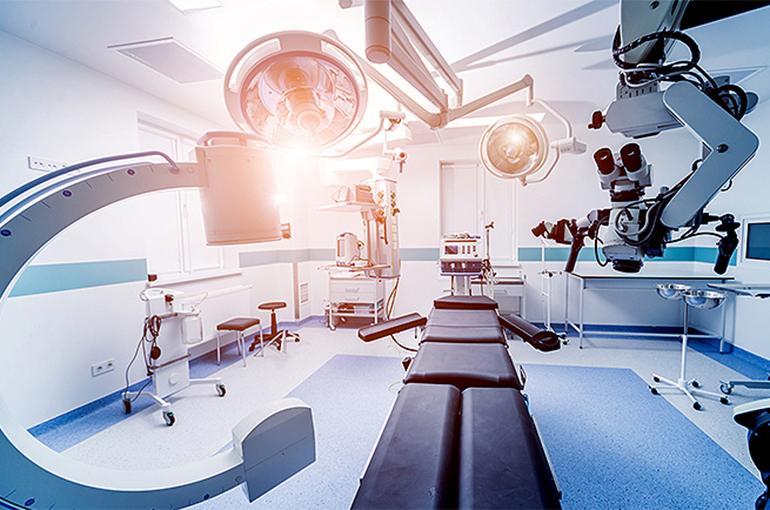 Most US Medical Devices Have Chinese Alternatives, Industry Body Says
Most US Medical Devices Have Chinese Alternatives, Industry Body Says(Yicai) April 24 -- The cost of US medical devices in China is set to rise significantly with the introduction of new tariffs. However, there are viable domestic substitutes for most of the products supplied by major US manufacturers such as Johnson & Johnson and Medtronic, according to a survey by a Chinese industry association.
The China Association for Medical Devices Industry has been assessing the impact of the new tariffs on different types of equipment and has ascertained that there are local alternatives for most of the products being supplied by US companies, Yicai learned.
Surgical supplies such as sutures, staplers, ultrasonic scalpels and hemostatic materials, surgical implants such as pacemakers, cardiovascular stents, neurostimulators and orthopedic devices, radiology imaging machinery such as ultrasound systems, not to mention clinical testing tools and reagents as well as anesthesia ventilators are all available locally.
For example, China used to rely entirely on imported antibacterial sutures. This meant that these consumables were often not included in the country’s centralized bulk-buy scheme and negotiations would be postponed or conducted separately. However, in 2023, a number of Chinese companies were given permission to sell their own antibacterial sutures and prices dropped significantly.
“Chinese medical devices can meet most of the needs of Chinese patients,” an industry insider told Yicai. “The quality of local brands is comparable with imports, but there is still need for improvement in terms of brand recognition and doctor training.”
Even in niche areas where there aren’t yet any China-made alternatives, there are equivalent treatments that can deliver similar outcomes, the insider said.
China used to import most of its high-end medical devices, and it remains a critical market for US industry leaders such as Johnson & Johnson, Medtronic, GE Healthcare, Abbott, BD Biosciences and GE Healthcare. However, in recent years, China's medical device market has undergone a major shift. A wave of Chinese medtech companies have emerged which are capable of producing equipment that can match the quality and technological standards of foreign brands.
The additional tariffs will add ‘hundreds of millions of US dollars’ in extra costs, which will further slow down Danaher’s already sluggish China orders, the US life sciences equipment maker said in its latest earnings report released on April 22.
Chinese in-vitro diagnostic reagents can now meet most of the country’s demand. Around 12 percent of Danaher’s revenue comes from China, and so the Washington D.C.-based company plans to adjust its manufacturing layout to help mitigate the impact from the tariffs.
Intuitive Surgical, maker of da Vinci surgical robots, said that tariffs will weigh on its China business for the rest of the year and will erode its competitive edge. As more China-made surgical robots get the greenlight to go to market, Intuitive Surgical is losing its dominant position in the country, Everbright Securities said in a research report.
Editor: Kim Taylor